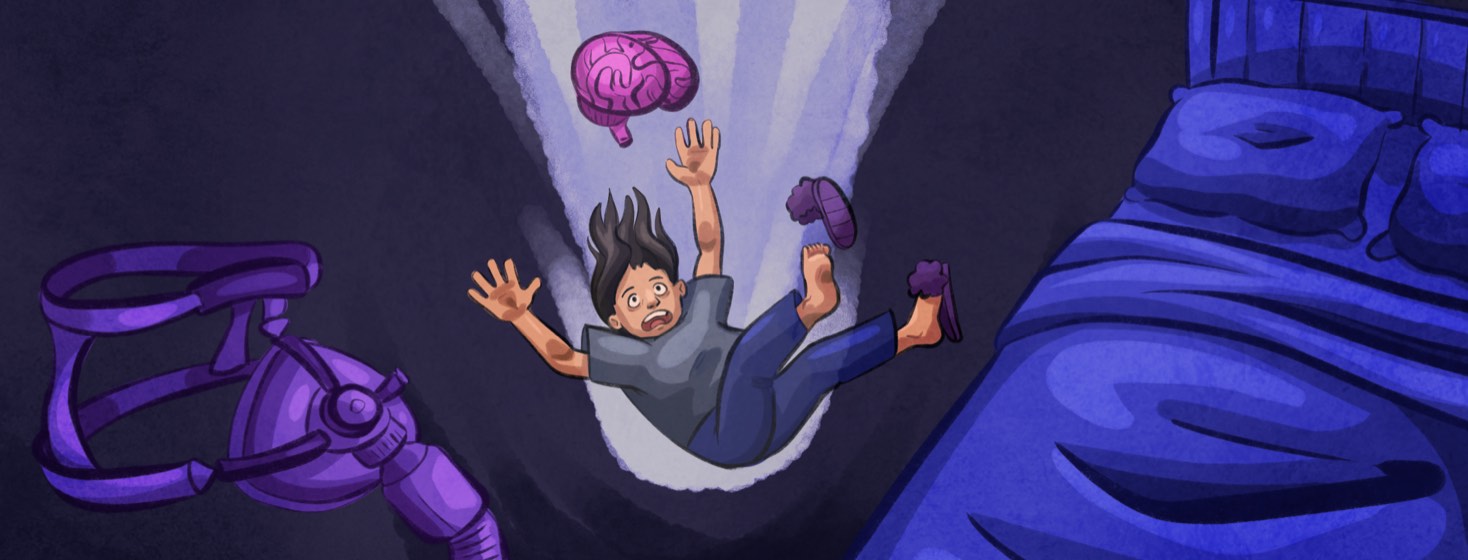Impact of Obstructive Sleep Apnea on Balance, Gait, and Falls
Obstructive sleep apnea (OSA) is a sleep disorder where the throat muscles relax too much. This causes the airway to narrow and can stop your breathing. This can happen several times a night. OSA causes snoring and disrupted sleep. OSA makes it hard to stay awake.1
Many health conditions are linked to OSA, and OSA can affect your ability to walk and keep your balance. Those with OSA are more likely to be injured from falls and accidents. This can be serious, especially for those over 65. Using a continuous positive airway pressure (CPAP) machine may help lessen the symptoms of OSA, including problems with balance.2
The link between balance, gait, and OSA
Gait, or how you walk, is a highly coordinated process. To walk, your body engages the following functions:3
- Neuromuscular – how your body controls and coordinates muscle movement
- Sensory – how your body experiences a sensation and relays it to your brain
- Cognitive – your brain’s ability to think and reason, decide, solve problems, and learn
Problems with gait and balance can be caused by diseases like arthritis, problems with the inner ear, stroke, neurological (nerve) issues, or foot problems. OSA has also been linked to abnormal gait and balance. A 2020 study found that those with OSA have worse balance and gait compared to those without OSA. Bad cases of OSA had the worst effects on balance and gait.4,5
How can this impact my life?
A 2021 study found that people with OSA are 83 percent more likely to be injured. This risk was highest for people over 65 years old. The heightened risk was for the following unintentional injuries:2
- Falls
- Traffic-related injuries like motor vehicle accidents
- Poisoning
- Suffocation
OSA affects your brain’s ability to focus, remember, and execute actions. This could cause you to misjudge your abilities. You could also misjudge your environment, which could cause injury. OSA can also cause swallowing problems, which could raise the risk of suffocation.2
Hypoxia could also be to blame. When you stop breathing at night, your body becomes hypoxic. This means you do not get enough oxygen. Hypoxia causes stress on your body and disrupts your sleep. This could contribute to why OSA raises your risk of injury.6
It appears that people with OSA may also have an increased risk of suffering intentional injury. Researchers in Taiwan looked at 15 years' worth of information about people with OSA. They found that people with OSA were much more likely to experience suicide, homicide, or abuse.2
It is already known that having sleep apnea can have negative effects on your mental health. But these researchers' findings about intentional injury are new. Other studies have not shown a link between OSA and these kinds of injuries. So more studies need to be done to figure out whether they are really related and, if so, how.2
How can I improve my gait and balance?
A 2018 study showed that using a CPAP machine for 8 weeks improved gait and balance in people with OSA. CPAP machines can improve other OSA symptoms as well. So using a CPAP may be a treatment option if you have balance or gait issues along with your OSA.6
OSA can impact many parts of your life. If you think you have OSA, talk to your doctor. You may get screened for OSA or do a sleep study. This will assess your quality of sleep. Untreated OSA can affect your whole body so early diagnosis and treatment are key in maintaining your health.1
Do you notice an impact of OSA on your balance, gait, or falls? Please share your story and a comment with the sleep apnea community.
Written by: Jessica Gullett Rubino | Last reviewed: December 2022

Join the conversation